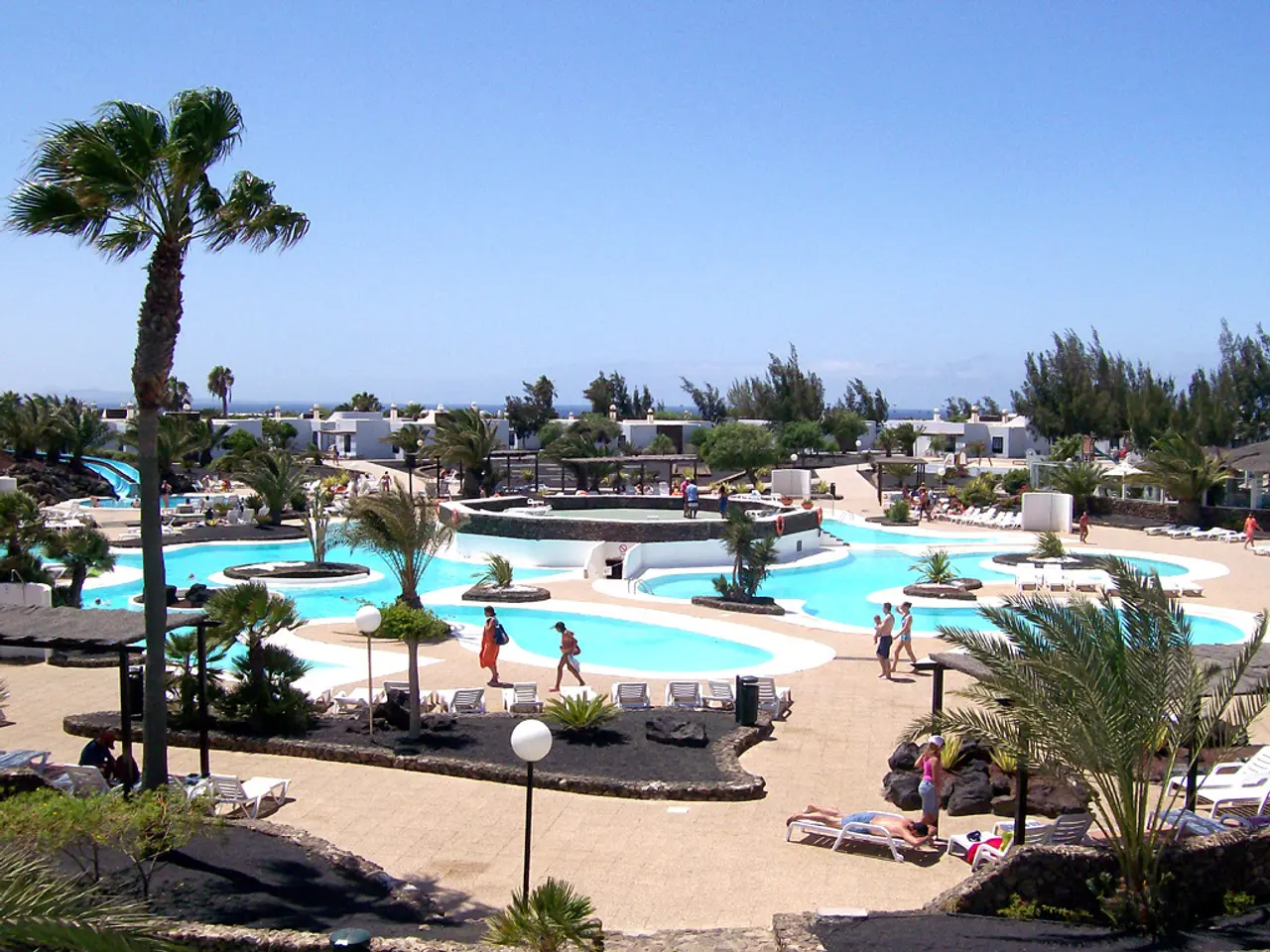Pune To Implement Time-Based Admission at Popular Tourist Attractions to Combat Excessive Tourism
In a bid to manage overtourism and protect natural environments, the Pune district administration has implemented a digital slot-booking system. This system, which covers 25 high-footfall tourist spots across the district, requires tourists to reserve specific time slots in advance via a mobile application being developed by the Forest Department.
The objective of the system is to tackle overcrowding, reduce ecological damage, enhance tourist safety, and prevent accidents, especially during peak times like weekends and public holidays. The scope of the system extends to popular tourist spots such as Mulshi, Maval, Bhor, Rajgad, Khed, Junnar, and Ambegaon, which feature waterfalls, forest trails, hilly treks, and sensitive ecosystems that have seen exponential visitor growth recently.
A budget of ₹50 crore has been sanctioned by the district planning committee to develop the mobile app and supporting infrastructure for effective digital implementation. This includes physical infrastructure, such as ticket counters, turnstiles, signboards, and visitor information centers, to support smooth operation.
The system responds to serious safety incidents, including the June 2025 collapse of the Kund Mala bridge in the Kundalika Valley, which resulted in fatalities due to overcrowding. This tragedy led to the dismantling of 63 unsafe bridges and heightened efforts to regulate visitor inflow digitally.
By regulating visitor entry through booked time slots, the administration aims to protect fragile ecosystems from damage, reduce human-wildlife conflict during sensitive seasons, and ease traffic congestion in tourist hotspots. Entry points at these sites will be equipped with monitoring infrastructure and staffed by Forest Department personnel and local volunteers. Anyone attempting to enter restricted areas illegally will face strict legal action. Real-time tracking will allow authorities to suspend access temporarily if footfall exceeds safe limits.
The Forest Department will jointly manage the system with local Gram Panchayats. The district collector, Jitendra Dudi, stated that the slot-booking system is being implemented to safeguard natural environments and tackle overtourism challenges. The system is part of a global effort by governments and local authorities to manage overtourism and protect natural environments.
In summary, the slot-booking initiative is a comprehensive, technology-driven approach to balance tourism growth with environmental preservation and public safety in Pune’s popular monsoon destinations such as Khed and Kundalika Valley. Southern Europe is seeing a backlash against overtourism, and this move by the Pune district administration is a step towards sustainable tourism management.
- To ensure environmental safety and promote sustainable tourism, the planned mobile application, part of a global effort, will integrate digital slot-booking and monitoring system in the lifestyle of travelers, managing entry to popular environmental-science locations like Mulshi, Maval, Bhor, Rajgad, Khed, Junnar, Ambegaon, and Kundalika Valley.
- As technology advances, the digital slot-booking system in Pune not only addresses the issue of overcrowding, reducing ecological damage, and improving safety in these tourist spots, but also aims to protect sensitive forest trails, hilly treks, and waterfalls from degradation through real-time tracking and legal action against illegal entry, thereby fostering a harmonious relationship between science, technology, and the environment.




